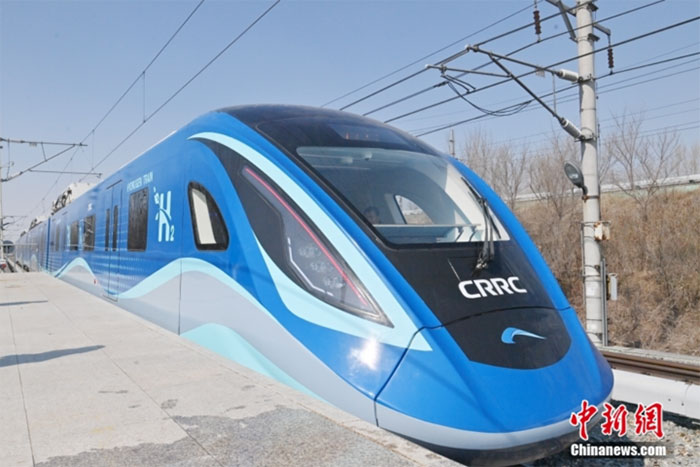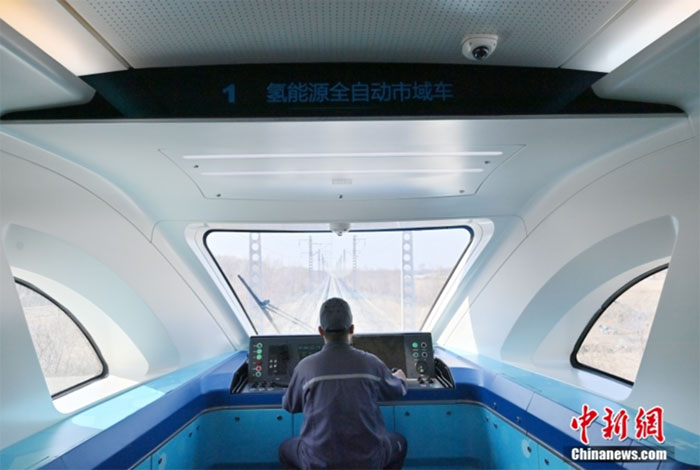China successfully tested the world's first urban train using hydrogen
The world's first urban train using hydrogen energy has completed testing at a speed of 160km/h in China.

According to China News, on March 21, the world's first urban train using hydrogen energy completed an operating test at a speed of 160km/h in Changchun city (Jilin province, Northeast China). National).

The train was developed by Changchun railway passenger car company of China Railway Corporation (CRRC).

The train consists of 4 carriages and has a maximum operating speed of 160km/h. Unlike traditional trains that rely on fossil fuels, or electrical wiring, for power, the urban train being tested by China has an integrated hydrogen power system, which can provide a source of power. strong and long lasting.

During testing, the train's average energy consumption was 5 kWh/km, equivalent to the world's leading speed of clean energy trains, and the maximum cruise range was more than 1,000km. .

This test has verified that the train can operate at temperatures from -25 degrees Celsius to 35 degrees Celsius, meeting design requirements and meeting top international standards.

The completion of hydrogen-powered urban train testing marks China's breakthrough in applying hydrogen energy to the rail transport sector.

China has ambitious plans to promote the development of the hydrogen energy industry. By 2025, the country expects about 50,000 vehicles to run on hydrogen fuel cells and annual hydrogen production from renewable energy is targeted at 100,000 to 200,000 tons.
- China successfully tested the next-generation super-speed train
- Close up of the first urban railway train in Hanoi
- India successfully tested anti-ship collision technology
- Nhon-Hanoi Urban Railway has been testing trains since September 2020
- Germany is keen on using hydrogen fuel trains next year
- The world's first all-hydrogen railway
- Video: China tested high-speed bullet train 350km / h
- Design of 10 Metro trains in Hanoi
- The first hydrogen vehicle in the world rolled in China
- Hyperloop One will have its first passenger train in 2021
- China can successfully build the artificial Sun.
- China successfully tested fusion energy reactors
 'Fine laughs' - Scary and painful torture in ancient times
'Fine laughs' - Scary and painful torture in ancient times The sequence of numbers 142857 of the Egyptian pyramids is known as the strangest number in the world - Why?
The sequence of numbers 142857 of the Egyptian pyramids is known as the strangest number in the world - Why? History of the iron
History of the iron What is alum?
What is alum?